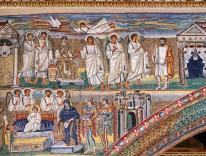
I thank my good friend Paul Lakeland for his response to my piece on Margaret Renkl. Although he suggests otherwise, we are in agreement in thinking that the Catholic understanding of sexuality and sexual morality has changed over time. I welcome such change but, unlike Lakeland, I also think it must be more continuous with traditional Catholic beliefs, including beliefs about gender.
Lakeland argues that we need to “step away from outdated anthropology and trust our God-given eyes.” That, of course, is what contemporary culture urges us to do all the time. One of the things I value about Catholicism is how it questions what I am inclined to think or predisposed to see or want. There is still much of value in the Church’s traditional anthropology, which after all places a high value on self-abnegating love and abiding commitments. Lakeland celebrates what Johann Baptist Metz called Catholicism’s “productive non-contemporaneity,” but it is not clear where Lakeland thinks that countercultural perspective ought to apply. Not to sexual ethics or identity politics, evidently, nor to ecclesiology, as far as I can tell.
The scientific analogies Lakeland deploys are not very useful in thinking about sexual morality. What new telescope allows us to see human sexuality more clearly than our ancestors did? Homosexuality, after all, has existed since the beginnings of the human race; it is not a modern discovery. Yes, we now have more knowledge of how the body works but, if our current sexual confusions are any indication, no more knowledge of the human heart. When Lakeland writes that “common sense says that human beings know how to employ sexual relations responsibly,” I wonder what planet he is living on. Something closer to the opposite seems to be the truth, today as in the past. The Church has not always been right on these issues, but it has been more often right than wrong on how easily all of us deceive ourselves about sex, love, and many other things. We live in a broken world, and human nature itself is broken and in need of redemption. That, at least, is the traditional teaching. The invocation of love does not trump Scripture and tradition. Love is the excuse of every adulterous couple; love of country the justification for countless crimes. As I note in my most recent column, love was the reason Amy Bloom helped her husband commit suicide. I do not doubt the authenticity of that love, but I do question what she did in the name of it. I welcome the sort of interrogation the Church offers when I am inclined to think my desires or ambitions are my business alone and affect no one else.
Obviously, Genesis is not a scientific text. But the “biological distinctions” found in Genesis, which Lakeland considers theologically trivial, pervade Scripture and Church teaching. Heterosexual marriage is the metaphor used to describe God’s love of Israel and the relationship between Christ and the Church. Sacramental marriage itself is understood to participate in the mystery of Christ’s love for his Church. In Revelation, the coming of the Kingdom of God is described as a wedding day. (Talk about productive non-contemporaneity!) Setting all of this aside as just so much outdated anthropology, or as an instance of sexualizing the Godhead, turns much of the Church’s teaching and plain language upside down. Such an approach stymies, rather than advances, reform.
Finally, as I wrote in my piece on Renkl’s recent NYT columns, different Catholic communities will come to terms with same-sex marriage in different ways. I proposed that we wait and see which communities flourish. Lakeland is impatient with that sort of gradualism; he thinks I can’t see the forest for the trees. I just don’t want to see a lot of old trees cut down before we inspect the saplings that are supposed to replace them.

